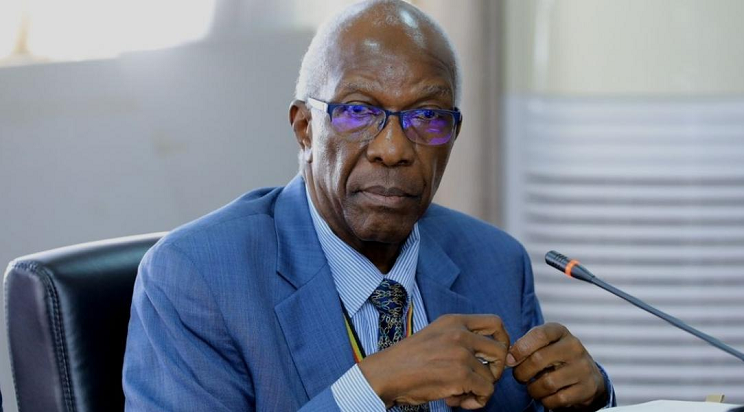John Muwanga, the Auditor General
A section of lawmakers have lashed out at Government for lying about Uganda’s public debt portfolio after unearthing discrepancies in the figures reported were less by Shs8Trn.
While presenting the National Budget Framework Paper for 2023/2024, the Ministry of Finance, Planning and Economic Development highlighted that the stock of public debt increased from US$ 19.54Bn in June 2021 to US$ 20.99Bn about Shs78.833Trn as at June 2022.
However, when the Auditor General John Muwanga presented his December 2022 Auditor General report on financial statements for FY2021/22, the reported total public debt as at 30th June 2022 stood at Shs86.6Trn of which Domestic Debt Stock was Shs38.1Trn and the External Debt Stock was valued at Shs48.5Trn.
During the debate on the report by Parliament’s Budget Committee on the National Budget Framework Paper 2023/2024, Jonathan Odur (Write South) tasked the Ministry of Finance to explain the discrepancies, arguing that if the distorted figures means Government isn’t honest with itself, much less the state of economy.
“This is an understatement of the value of our public debt by Shs8Trn as of June 2022. This essentially means that we aren’t being honest and if we are to use a more harsh word, there is fraud computed in the Budget Framework Paper. The implications of such under declarations means that whatever we are basing on as an entire country to project our economy can’t be correct. If we under state our debt by Shs8Trn, it means even our GDP to debt ratio that we report to be sustainable can’t be correct” argued Odur.
He was backed by Deputy Speaker Thomas Tayebwa who questioned why two government offices of Auditor General and Ministry o Finance haven’t agreed on formula on how to define public debt.
The Deputy Speaker argued, “Even me when I was reading, I saw it and got a bit concerned. Do you want to mean that you don’t have one clear framework which you agree upon that this is the framework for reporting public debt. Do you want to say you didn’t include Bank of Uganda advances, arrears and then the Auditor General included them?
Amos Lugoloobi, State Minister for Planning apologise for the distorted figures blaming it on the failure as Government to agree on the what constitutes public debt and promised to harmonise the definition with the Auditor General.
He said, “The Auditor General in his figures actually includes arrears and advances to Bank of Uganda which we don’t. It is a matter that has just emerged and it requires that the two of us reconcile in the way we define what constitutes public debt. It’s a simple matter we are sorry that this happened but we hope we shall reconcile it and use the sake parameter to define public debt going forward.”
However, his explanation was scoffed at by Muwanga Kivumbi (Butambala County) who went on to question the common sense of the officials at the Ministry of Finance who thought domestic arrears, government liabilities doesn’t constitute public debt arguing that any distortions in public debt impacts on Uganda’s economic parameters.
He argued, “They want to dispute Bank of Uganda advances but they know they have to report within a given time, if you fail to pay back, then they become advances, once they become advances, they’re a liability and they even attract interest, therefore, they’re part of our national debt. By all means, people who have supplied you, consumed their goods, you haven’t paid, then you owe them money. How do you then calculate your debt obligation and say you don’t owe me money? So it’s not a question whether you went to Harvard or London School of Economics, it’s the school of common sense of economics. The other element they’re not reporting is our element of contingent liabilities which is part of our debt obligation.
Deputy Speaker urged the Ministry of Finance and Office of the Auditor General to sit and reconcile on the definition of public debt.





